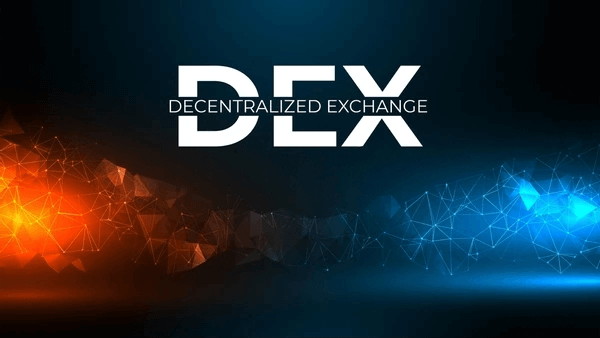Decentralized exchanges (DEXs) are becoming more mainstream and bringing many benefits to the digital asset ecosystem. Moreover, their growth has been exponential over the past few years. Today, hundreds of DEXs are available on the market, and many are operational 24/7. These decentralized trading platforms act as non-custodial gateways for users' cryptocurrency funds instead of an exchange that acts as an intermediary between those buying and selling. As a result, they eliminate the inherent risks associated with centralized exchanges (CEXs), such as hacking, insolvency, financial crime, insider trading, and other threats. Moreover, DEXs remove the need for users to trust third-party service providers like escrow agents or custodians. Given their many benefits, it is no wonder that more investors are turning to DEXs instead of centralized exchanges. As a result, some centralized exchanges have responded by developing DEX offerings to remain competitive. In this article, we will examine how the growth of DEXs is changing the financial services industry and discuss how this will impact centralized exchanges in the future. If you send crypto from your PlasBit wallet to an exchange, knowing the benefits and risks of both DEXs and CEXs is crucial.
What is a Decentralized Exchange (DEX)?
A decentralized exchange is a platform that allows the seamless exchange of cryptocurrencies between parties without needing a third-party intermediary.A DEX eliminates the need for trusted third parties, as trading parties interact directly. Most DEXs operate as a peer-to-peer (P2P) system. They use a distributed blockchain network to store customer assets and smart contract technology to facilitate the exchange process. Once funds are deposited, trading parties can engage in direct P2P trading without needing a third party. The nature of distributed ledgers makes hacking nearly impossible because hackers would have to compromise each computer on the network. Moreover, centralized exchanges are vulnerable to cyberattacks because they are held on one centralized server. Instead, decentralized exchanges run on a distributed network of computers, making them more secure.
How Does a Decentralized Exchange Work?
Centralized exchanges handle trading for cus tomers through a centralized matching process. Users place orders with the exchange, and the matching engine matches orders between traders. If a trade does not complete at the specified time, the order is canceled, and funds return to the trading parties. DEXs, on the other hand, operate as an open-source platform with no centralized matching engine. There are no third parties between buyers and sellers and no order book or matching engine. Thus the only thing needed to trade on a DEX is a digital asset wallet with a cryptocurrency pair (or more) to trade. In addition, DEXs maintain a decentralized ledger that records the trading history of all parties. Every transaction is recorded in this shared ledger and is viewable by all trading parties. Sellers can view the trade history of buyers and vice versa.

Advantages of Decentralized Exchanges
The main advantage of DEXs is that they remove the risk of currency theft and fraud. Additionally, DEXs are generally more secure than centralized exchanges because they do not rely on a single point of failure. There are several compelling reasons why users should consider using a DEX over a centralized exchange. First and foremost, centralized exchanges are at risk of being hacked. This has happened numerous times, with Mt.Gox in 2014 and Bitfinex in 2016 as notable examples. In total, hackers stole $534 million worth of Bitcoin from Bitfinex. Secondly, centralized exchanges can be slow and unreliable regarding withdrawals. Again, this was evident with the Mt.Gox debacle, where users could not withdraw their funds for weeks. Finally, centralized exchanges are susceptible to government interference. This is evident from numerous Chinese cryptocurrency crackdowns, where exchanges have previously been forced to halt operations. DEXs, however, are relatively immune to these types of threats.
Disadvantages of Decentralized Exchanges
While there are several advantages to using a DEX over a centralized exchange, there are also some drawbacks. One disadvantage of DEXs is that they are not as user-friendly as centralized exchanges. This can make it difficult for users to trade cryptocurrencies. Additionally, DEXs can be slower than centralized exchanges for the actual execution of trades, leading to longer transaction times. Additionally, DEXs are less user-friendly than centralized exchanges. This is because they require users to learn new trading platforms and procedures.
DEXs Popularity Rising Due to CEX Failures
For many crypto purists, there is something fundamentally wrong with centralized exchanges and how they have developed. If a central tenet of cryptocurrency is decentralization, it is natural to be disappointed with attempts to centralize control and operations. It could be argued that many CEXs have become no different from the banks that many crypto users are looking for an alternative to - centralized authority, control over user funds, and reporting customer activity to governments. The most recent comparison with traditional finance is seen in how some CEXs have appeared to follow banking practices that ultimately put their users' funds at risk. In addition, the collapse of the FTX exchange in 2022 has spotlighted the activity of CEXs in terms of how they structure their business and the individuals who run them. DEXs are the natural solution to both of these growing problems.
- People as a Point of Failure in CEXs - If the collapse of exchanges (FTX), funds (3 Arrows Capital), and entire crypto projects (LUNA) taught us anything in 2022, it is that while machines can operate perfectly, people bring a whole different set of risks. Whether incompetence or fraudulent behavior motivated by greed, consolidation of power and control over users' funds is a potential problem of centralized exchanges that DEXs overcome. DEXs are less influenced by the politics and personalities of the figures leading or associated with them. Trusting in a single individual or even a company goes against the ethos on which cryptocurrency is founded. This is why PlasBit invites you to understand the company's values but ultimately gives you the tools to manage your own money and pursue your economic freedom without trusting any third party. For example, you can send BTC from your PlasBit wallet to another BTC address free from any concerns about privacy or influence by any third party.
- Concerns About CEXs and User Funds - Since the Mt. Gox CEX hack happened way back in 2014, it is surprising that several years later, the broader public is only now understanding the nature of the risks CEXs can bring depending on their structure. Post-2022 and the FTX crash, many are asking questions about how the structure and activities of CEX companies impact funds held there. Some of the more risky elements of traditional finance can be at play, such as the fractional reserve banking model. A CEX could, for example, be pooling customer funds, only holding a small amount of the overall total and speculating the rest on risky investments. The difficulty some centralized exchanges have recently had in fulfilling large-scale customer withdrawals indicates that this practice may be over-used. DEXs provide a solution since while funds may still be pooled for operational purposes, there is no third-party control or use of those funds. User funds cannot 'disappear' into the workings of the centralized machine or be transferred elsewhere. Put simply, if the funds are showing as available on a DEX, then they can be withdrawn. Large-scale withdrawals make no difference, a stark comparison to CEXs who have found themselves exposed to pressures akin to a 'run on the bank'.
The trustless nature of DEXs is a growing attraction to users, with the failures of CEXs forcing them to explore beyond the convenience of centralized offerings. In DEXs, they are discovering a way to buy and sell crypto that is inherently immune from many problems that have accelerated in recent years with CEXs. Likewise, a heightened awareness of privacy and security risk from CEX failures has prompted crypto companies like PlasBit to ensure that users of their crypto wallet have access to cutting-edge tools to protect them, such as Biometric and Two-Factor authentication.
How Centralized Exchanges Will Respond to the Growth of DEXs
As decentralized exchanges continue to increase, centralized exchanges are beginning to take note. As a result, CEXs are actively working to incorporate more of the DEX ethos to win back customers' trust in centralized exchanges. One way that CEXs are responding is by developing their own DEX for trading. For example, Binance launched its own DEX, Binance Chain, to broaden its offering and take advantage of increased customer appetite for DEXs. The growth of DEXs are relative to the challenges faced by centralized exchanges has also prompted the latter to 'do better'. New transparency and governance measures have rapidly been introduced to reassure CEX users that their funds are safe. For example, revealing the addresses of where CEX funds are held shows that it is 'all there.' However, question marks remain about the extent of liabilities that companies behind CEXs have and what impact those could have on aggregated user funds. It is, therefore, wise to still be cautious when trusting any third party with access to your crypto.
Considerations as a Crypto User
As a crypto user, there is no reason not to embrace the growth of DEXs, but knowing that each comes with its challenges and responsibilities is essential. For all the weaknesses and risks of CEXs, as with traditional banking, there are some positives that we have often come to rely on as customers. For example, if you make a mistake with a transaction in conventional finance, customer service at the bank may be able to help you reverse it. This is not achievable when using a decentralized peer-to-peer system with no intermediary. So, as a user, there is always a balance between ease of use or convenience and keeping personal control. Any system that allows you to maintain control of your private keys and keep your crypto safe in your wallet when trading is to be encouraged. At the same time, the growth of DEXs will prompt users to think differently and exercise more due diligence when interacting with CEXs and companies in the cryptocurrency space. PlasBit shares the ethos behind the team and its goals precisely for this reason. As a result, users can be reassured that their vision of economic freedom is one they can share while still keeping control of their assets through the benefits of decentralization.







